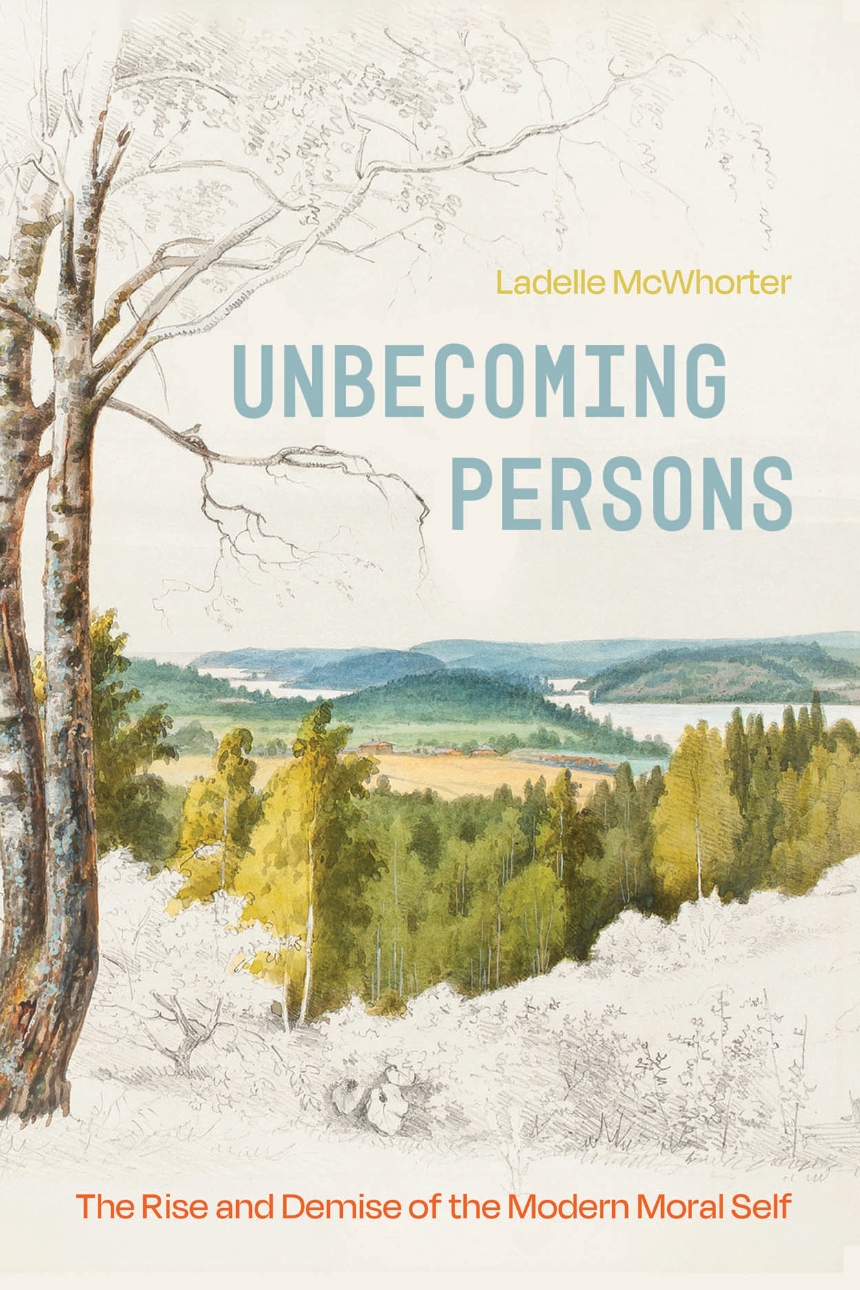Unbecoming Persons
The Rise and Demise of the Modern Moral Self
9780226843599
9780226843582
9780226843605
Unbecoming Persons
The Rise and Demise of the Modern Moral Self
A damning genealogy of modern personhood and a bold vision for a new ethics rooted in belonging rather than individuality.
In the face of ecological crisis, economic injustice, and political violence, the moral demands of being a good person are almost too much to bear. In Unbecoming Persons, Ladelle McWhorter argues that this strain is by design. Our ideas about personhood, she shows, emerged to sustain centuries of colonialism, slavery, and environmental destruction. We must look elsewhere to find our way out.
This history raises a hard question: Should we be persons at all, or might we live a good life without the constraints of individualism or the illusion of autonomy? In seeking an answer, McWhorter pushes back on the notion of our own personhood—our obsession with identity, self-improvement, and salvation—in search of a better way to live together in this world. Although she finds no easy answers, McWhorter ultimately proposes a new ethics that rejects both self-interest and self-sacrifice and embraces perpetual dependence, community, and the Earth
In the face of ecological crisis, economic injustice, and political violence, the moral demands of being a good person are almost too much to bear. In Unbecoming Persons, Ladelle McWhorter argues that this strain is by design. Our ideas about personhood, she shows, emerged to sustain centuries of colonialism, slavery, and environmental destruction. We must look elsewhere to find our way out.
This history raises a hard question: Should we be persons at all, or might we live a good life without the constraints of individualism or the illusion of autonomy? In seeking an answer, McWhorter pushes back on the notion of our own personhood—our obsession with identity, self-improvement, and salvation—in search of a better way to live together in this world. Although she finds no easy answers, McWhorter ultimately proposes a new ethics that rejects both self-interest and self-sacrifice and embraces perpetual dependence, community, and the Earth
282 pages | 6 x 9
Philosophy: Ethics, General Philosophy, Philosophy of Society, Political Philosophy
Reviews
Table of Contents
Introduction: The Question of How to Live
1. “God Is No Respecter of Persons”: The Modern Person’s Ancestors from the Ancients to the English Civil Wars
2. Subject of/to Judgment: John Locke and God’s Three Persons
3. Imposing Personhood: African Enslavement and Indigenous Resistance
4. Sovereign Persons, Nonpersons, and Corporate Persons: The United States in the Nineteenth Century
5. Questioning Ownership
6. Questioning Individuality
7. Imagining Life After Personhood
Acknowledgments
Notes
Works Cited
Index
1. “God Is No Respecter of Persons”: The Modern Person’s Ancestors from the Ancients to the English Civil Wars
2. Subject of/to Judgment: John Locke and God’s Three Persons
3. Imposing Personhood: African Enslavement and Indigenous Resistance
4. Sovereign Persons, Nonpersons, and Corporate Persons: The United States in the Nineteenth Century
5. Questioning Ownership
6. Questioning Individuality
7. Imagining Life After Personhood
Acknowledgments
Notes
Works Cited
Index
